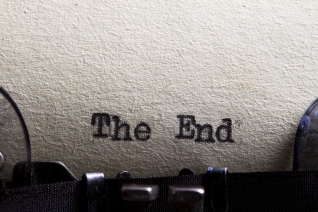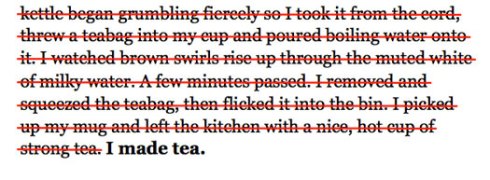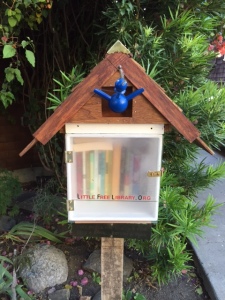You know that melancholy feeling when you come to the end of a beloved book, one that has made you laugh and cry and stay up way too late contemplating the very nature of humanity? You know that feeling when you want to tear through the last few chapters to find out what happens, but you never want the story to end, never want to leave the people and world you’ve come to care so much about?

And then there’s that feeling that comes when you invest your time, your heart and your head into a great book that abruptly jumps the shark in the eleventh hour, leaving you frustrated and disappointed. This can come in the form of the classic Hollywood ending, where everything falls unnaturally into place. Not to pick on Wally Lamb again, but (**SPOILER ALERT**) I poured through the nearly 800 pages of mental health issues, suicide, professional failure, break ups, and family mysteries in I Know This Much Is True, only to come to an ending where the hero reunites with his estranged barren wife, adopts the miraculously HIV-free baby from his dying AIDS-infected ex-girlfriend, and then finds out he is in fact just Native American enough to share in a large financial settlement between the government and a local tribe. Ka-pow!
And then there are those torturous novels that offer no resolution at all (I’m looking at you, The Little Friend).
I hate those books for making me love them until they reveal their true nature. They are teases, players.
I never want to read those books. I never want to write them either.
Having said all of this, crafting a completely satisfying ending to your own beloved book is damn hard.
I have struggled with the ending of my novel, or at least the pacing for it. The overall feedback from my writers’ group and beta readers is that while the end felt satisfying and appropriate, things are resolved a tad too quickly. So I decided to add a brief flash forward to give the reader a peek view of the story that hypothetically continues on long after the book ends. Generally speaking, I am not a fan of epilogues and avoided the device here, but wanted to show just enough of the future for readers to draw their own conclusions. Because one of the best things about reading a novel is that you get to speculate over what comes after the novel ends.
I submitted Draft #4 of my novel in its entirety to my writers’ group three days ago. We will hold a special meeting to discuss the manuscript in two months’ time. Breath held and fingers crossed, I will bide my time attempting to write something, anything else. Wish me luck.
 took an Uber to the courthouse, and it seemed deliciously ominous when the driver dropped me off beside a street sign that stated: “No Parking: Homicide Only.” I had been summoned to criminal court. Would I be placed on an assault case? Armed robbery? Now it seemed that murder was a real option.
took an Uber to the courthouse, and it seemed deliciously ominous when the driver dropped me off beside a street sign that stated: “No Parking: Homicide Only.” I had been summoned to criminal court. Would I be placed on an assault case? Armed robbery? Now it seemed that murder was a real option.






